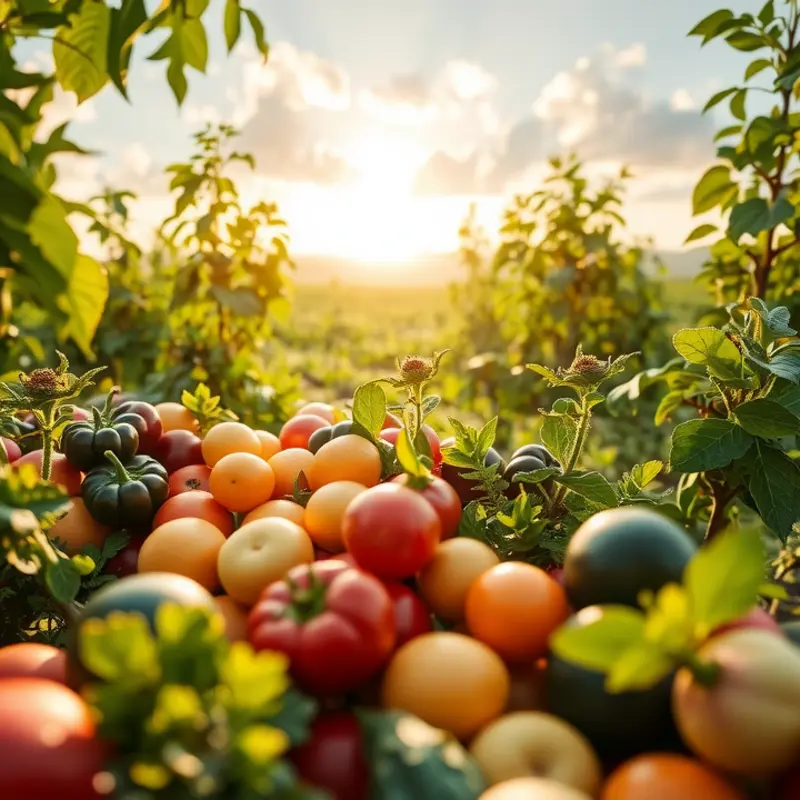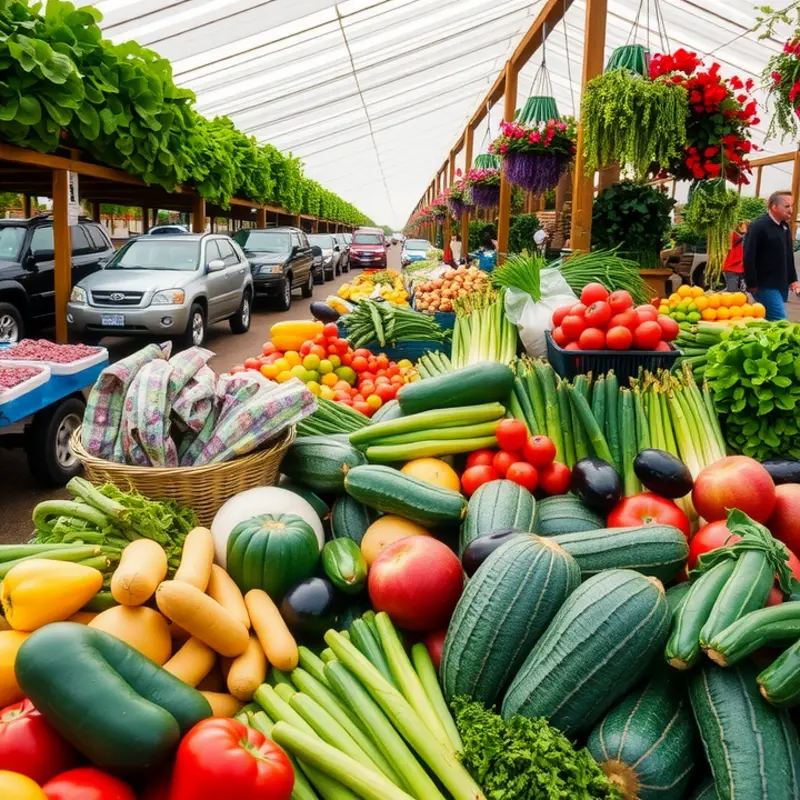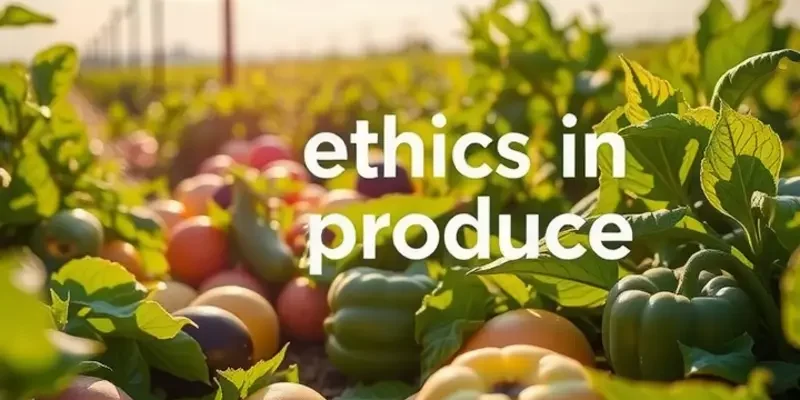Choosing ethically produced food can have a significant impact on the environment and health. With increasing awareness about sustainable practices, eco-conscious individuals are seeking ways to minimize their footprint while supporting ethical farming methods. Understanding the importance of where our food comes from, how it’s produced, and the benefits of conscious consumption are essential steps toward fostering a healthier planet. By embracing ethical produce consumption, you not only nourish yourself but also contribute to the well-being of communities and the environment.
The Power of Ethical Eating

Understanding the impact of our food choices on multiple facets of life leads to more sustainable practices. Ethical eating is not just about personal health but also about aligning consumption habits with broader ecological and social goals. Let’s explore how our interconnected food systems influence environmental health, biodiversity, and communities involved in food production. By recognizing these intricate relationships, we can better navigate our choices towards supporting a healthier planet.
Food systems significantly impact climate change. Agriculture accounts for approximately 24% of global greenhouse gas emissions, primarily from deforestation, methane from livestock, and nitrous oxide from fertilized fields. Choosing plant-based foods can help reduce our carbon footprint. Incorporating more whole grains, legumes, and vegetables into our diets is not only beneficial for our health but also reduces emissions compared to meat-based meals. For those interested in easy ways to incorporate more plant-based eating into their diet, this guide offers practical tips.
Biodiversity is another casualty of conventional food systems. Monocultures—the practice of growing single crops over large areas—decrease genetic diversity, making crops more vulnerable to pests and diseases. Supporting farmers who utilize crop rotations and polycultural methods helps protect biodiversity. Community Supported Agriculture (CSA) programs are a great way to support such sustainable practices while enjoying fresh produce.
Farmer welfare is intricately linked with ethical eating. Many small-scale farmers face challenges related to fair labor conditions and economic stability. By purchasing from local farmers, you strengthen local economies, create job opportunities, and promote social equity. Fair trade products ensure that workers involved in the production process receive fair wages and work under humane conditions. There is a moral imperative to support these ethical frameworks.
Additionally, food waste is a substantial issue linked to unethical consumption practices. Approximately one-third of food produced for human consumption is wasted, amounting to around 1.3 billion tonnes annually. Practicing mindful purchasing and utilizing efficient kitchen storage techniques can extend the shelf life of food and minimize waste. Adopting habits like meal planning and using leftovers creatively can further contribute to reducing food wastage.
Our choices at the grocery store or market are votes for the kind of world we wish to live in. Ethical eating goes beyond what’s on our plates. It’s about caring for the Earth, respecting all living beings, and contributing to a fair and sustainable food chain. By making informed decisions, we embrace a lifestyle that prioritizes the health of the planet and its inhabitants, ensuring future generations will thrive in a world rich in diversity and opportunity.
Practical Steps for Eco-Friendly Food Choices

To move toward eco-friendly food consumption, it’s essential to adopt practices that support sustainability. One of the most effective strategies is choosing locally grown produce. When you buy local, you reduce the environmental impact associated with transporting food over long distances. Local produce is likely fresher and in-season, also minimizing the need for preservatives. Seasonal eating ensures that you consume foods when they are naturally ready for harvest, which typically involves fewer resources.
Educating yourself about food certifications is another crucial step. Labels such as ‘organic’ and ‘Fair Trade’ provide insight into the ethical standards of the produce you purchase. Organic foods are grown without synthetic pesticides and fertilizers, promoting soil health and reducing pollution. Fair Trade certification ensures that growers receive fair compensation and work under safe conditions. Supporting such initiatives aligns your consumption with ethical farming practices.
Consider community-supported agriculture (CSA) programs as a bridge between you and sustainable farming. These programs allow you to pay upfront for a share of a farm’s harvest. By participating in a CSA, you support local farmers and gain access to fresh, seasonal produce. This direct relationship cultivates a deeper understanding of the food supply chain and encourages transparency.
Another practical approach is to minimize food waste at home. Learn innovative storage techniques to extend the shelf life of fresh produce. Understanding the best ways to keep fruits and vegetables fresh can significantly cut down on waste. For example, some foods need to be kept in a cool, dry place, while others thrive in specific humidity conditions. For more detailed storage tips, you can explore resources on eco-smart kitchen storage.
Moreover, you can actively reduce your carbon footprint by preparing meals with minimal environmental impact. This includes experimenting with plant-based recipes and sourcing proteins that have lower ecological footprints. Moderating meat intake and opting for sustainably harvested seafood can contribute significantly to lowering greenhouse gas emissions.
Plant-forward diets are increasingly popular and healthier for both individuals and the planet. Emphasizing vegetables, grains, nuts, and legumes not only lessens environmental impact but also offers myriad health benefits. Switching to plant-based eating even a few times a week reduces the demand for animal products, supporting sustainable agricultural practices.
The choices you make at the store and in the kitchen can significantly impact global ecosystems. By making informed and deliberate decisions, you contribute to a food system that values ethics and sustainability. Remember, every action counts, and the transition to eco-friendly eating is a journey, not a sprint. Adopting these strategies can bring you closer to consuming food that truly nourishes both you and the environment.
Final words
Embracing ethical produce consumption is a rewarding journey toward sustainability and community support. By understanding the impact of our food choices and aligning them with our values, we can contribute positively to the environment and the welfare of farmers. Simple changes, whether choosing organic options or supporting local farms, can make a difference. Each meal presents an opportunity to influence our food systems and promote ethical practices that ensure a healthier planet for future generations. Take the first step toward a sustainable lifestyle today.








